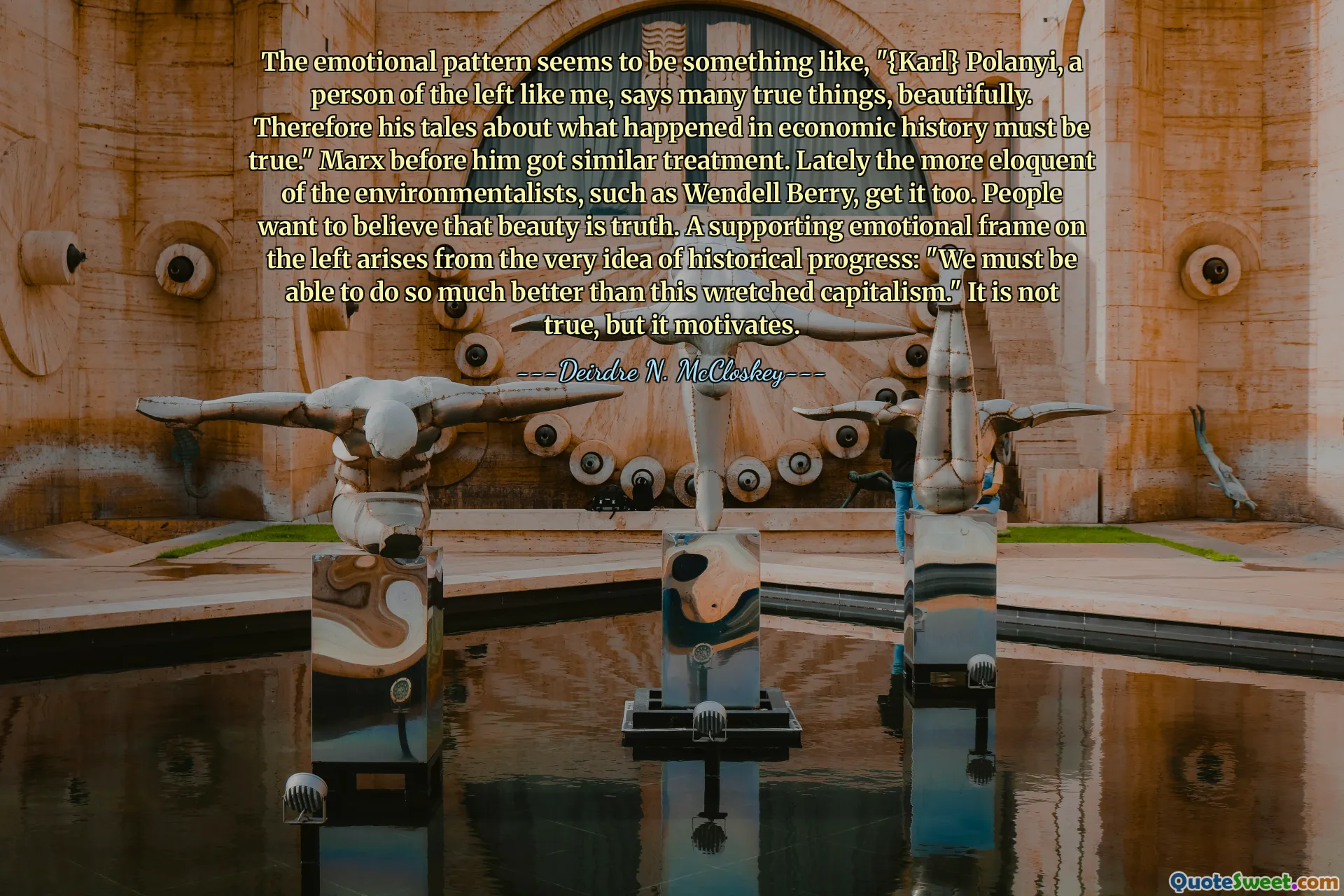
The emotional pattern seems to be something like, "{Karl} Polanyi, a person of the left like me, says many true things, beautifully. Therefore his tales about what happened in economic history must be true." Marx before him got similar treatment. Lately the more eloquent of the environmentalists, such as Wendell Berry, get it too. People want to believe that beauty is truth. A supporting emotional frame on the left arises from the very idea of historical progress: "We must be able to do so much better than this wretched capitalism." It is not true, but it motivates.
This quote thoughtfully exposes a subtle yet persistent cognitive phenomenon often observed in political and intellectual discourse. It highlights the tendency of individuals, particularly on the political left, to equate eloquence and emotional appeal with truth. This phenomenon is illustrated by referencing influential figures like Karl Polanyi, Marx, and environmentalists such as Wendell Berry, whose artistic or persuasive storytelling can sometimes be uncritically accepted as factual simply because they speak eloquently and align with the listener's ideological inclinations.
The quote provocatively suggests that this emotional attachment can lead to a kind of intellectual confirmation bias — an eagerness to embrace narratives that affirm one's worldview, even in the absence of complete accuracy. This reliance on the aesthetic or emotional power of an argument may hinder objective analysis and critical thinking. Furthermore, it identifies the myth of inevitable historical progress as another motivating emotional frame. This belief presumes that humanity must and can transcend the failures of capitalism, a notion that, while generally untrue in a deterministic sense, acts as a powerful motivational sentiment driving political activism and hope.
What stands out is the author’s acknowledgment of the motivational value these ideas furnish, regardless of their empirical truthfulness. It is a nuanced perspective that recognizes the complex interplay between truth, beauty, emotion, and ideology. Such reflection urges readers to be mindful of how feelings and aesthetics influence belief systems and the importance of maintaining intellectual rigor without discounting the motivating force of hope and beauty.











